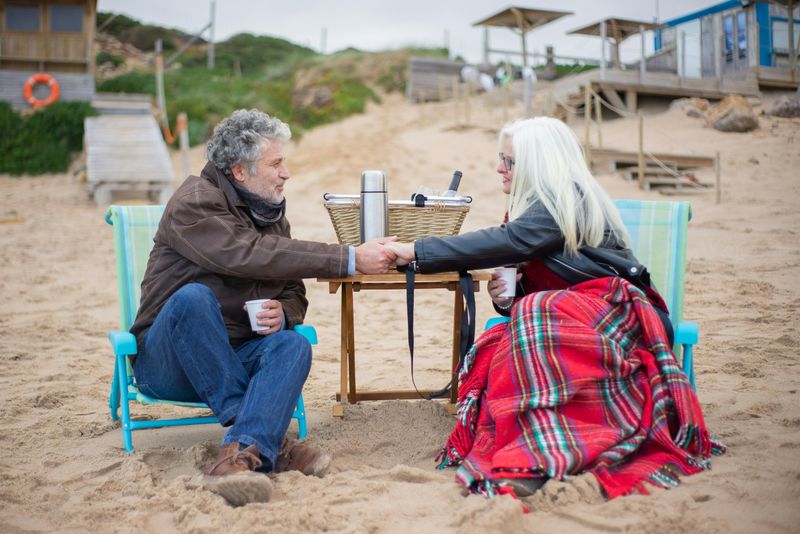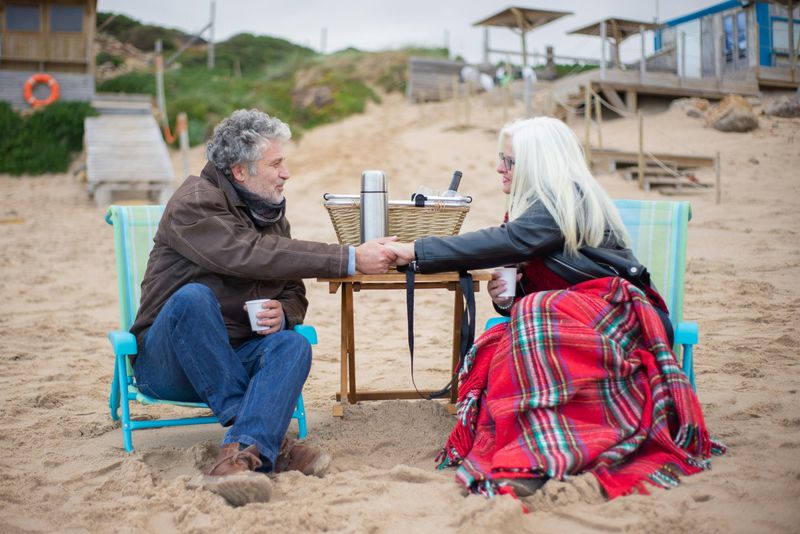How to Give Space Without Losing Connection

Relationships thrive on a delicate balance of togetherness and independence. Sometimes we need space to recharge, reflect, or simply breathe, but worry this might damage our connections with others. Finding this balance isn’t about pushing people away—it’s about creating healthy boundaries that ultimately strengthen your bond.
1. Have an Honest Conversation

Nothing replaces straightforward communication when you need space. Explain your feelings without blame, using “I” statements that focus on your needs rather than what the other person is doing wrong. Share specific examples of what kind of space would help you right now.
Most misunderstandings happen when people guess what others need. Your loved one might assume the worst if you suddenly become distant without explanation. A simple “I need some alone time to recharge” prevents hurt feelings.
Remember that asking for space isn’t rejecting the relationship—it’s protecting it. Most people respond positively when they understand the temporary nature of your request and know it’s not about them.
2. Establish Clear Boundaries

Boundaries aren’t walls—they’re fences with gates that let the good in while keeping stress out. Be specific about what your boundaries look like: maybe you need uninterrupted mornings, tech-free evenings, or one weekend day to yourself each week.
The clearer your boundaries, the easier they are for others to respect. Instead of vague statements like “I need space,” try “I’d love some quiet time between 7-9pm to read.” This gives the other person concrete information they can work with.
Good boundaries actually create safety in relationships. When everyone knows what to expect, there’s less room for resentment to build up, and more opportunity for genuine connection when you do come together.
3. Send Thoughtful Check-ins

Even during periods of space, small gestures maintain your connection. A quick text saying “Thinking of you” or sharing a photo of something that reminded you of them shows you’re still emotionally present despite the physical distance.
These micro-connections don’t demand lengthy conversations or immediate responses. They simply serve as bridges, reminding both of you that the relationship remains important. The key is keeping these check-ins pressure-free and genuine.
Morning or evening can be perfect times for these brief touchpoints. A simple “Good morning! Hope your day goes well” takes seconds to send but reassures the other person they’re still on your mind, preventing the space between you from feeling like abandonment.
4. Make Your Together Time Count

Quality trumps quantity when balancing space with connection. When you do spend time together, be fully present—phones away, distractions minimized, genuine attention focused on each other. This creates deeper bonds than constant but distracted togetherness.
Plan activities that foster real connection: cooking a meal together, taking a walk, or simply sitting with coffee and good conversation. These shared experiences create stronger memories than passive activities like watching TV side by side.
Psychologists call this “bids for connection”—those small moments when we reach toward each other emotionally. Responding positively to these bids, even in brief interactions, strengthens relationships more than longer periods of disconnected time ever could.
5. Honor Their Space Without Taking It Personally

Someone else’s need for space rarely reflects their feelings about you. Their request might stem from introversion, work stress, or personal processing needs—factors completely separate from your relationship’s health. Respecting this without taking offense shows true care.
Watch for the urge to “fix” their desire for space or to view it as rejection. When those thoughts arise, redirect them: “They’re recharging, not rejecting me.” This mental reframing prevents unnecessary relationship strain.
Giving space gracefully often strengthens trust. When you respect someone’s boundaries without guilt-tripping or passive-aggressive behavior, you demonstrate emotional maturity that makes them feel safe with you. This safety paradoxically draws people closer, not further apart.
6. Maintain Reliable Patterns

Consistency creates security when navigating space in relationships. If you say you’ll call on Thursday, make that call. If you’ve agreed to weekly dinners, keep that commitment unless truly necessary to reschedule. This reliability builds trust during periods of separation.
The human brain craves predictability. When patterns remain stable, anxiety decreases—even when those patterns include regular space. A friend who reliably responds to messages within a day feels more connected than one who sometimes answers immediately but other times disappears for weeks.
Create simple routines you can sustain. Maybe it’s sending a good morning text, sharing a weekly meal, or having a monthly deep conversation. These anchors provide comfort during times when other aspects of your connection might feel more fluid or distant.
7. Listen With Your Full Attention

The moments you do connect become powerful when filled with genuine listening. Put away distractions, make eye contact, and truly absorb what the other person shares. This depth of attention makes limited time together feel more meaningful than hours of half-present interaction.
Active listening involves more than waiting for your turn to speak. Notice their tone, facial expressions, and the feelings behind their words. Reflect back what you hear with phrases like “It sounds like you felt…” to show you’re truly absorbing their experience.
Studies show we remember only about 25% of what we hear. By practicing focused listening, you not only strengthen your connection but actually retain more of what matters to your loved one. This creates a sense of being truly seen—one of the deepest human needs.
8. Keep Special Traditions Alive

Small rituals create continuity even during periods of space. Maybe it’s Saturday morning coffee together, a monthly movie night, or sending each other songs on Fridays. These touchpoints become anchors that both people can look forward to and count on.
Traditions don’t need to be elaborate to be effective. Something as simple as texting “sweet dreams” each night or sharing weekend highlights creates a sense of ongoing connection. The key is consistency—these rituals signal that despite physical or emotional space, the relationship remains important.
Research shows shared rituals increase relationship satisfaction by creating moments of predictable connection. They also build a unique relationship identity—these are “our things” that belong just to you two, strengthening your bond even when other aspects of life pull you in different directions.
9. Pursue Personal Growth

Space becomes beneficial when used for self-development. Take a class, explore a hobby, reconnect with old friends, or simply process your thoughts through journaling. This not only respects the space but fills it with positive energy rather than anxiety.
Growing individually brings fresh energy back to your relationships. You return with new stories, perspectives, and a sense of fulfillment that makes you more present when together. This creates a healthy interdependence rather than the suffocation of constant togetherness.
The strongest relationships involve two whole people choosing to share their lives, not two halves desperately needing each other to feel complete. By investing in yourself during periods of space, you become a more interesting, grounded person to connect with when you come back together.
10. Express Ongoing Support

Reassurance bridges the gap created by space. Simple statements like “I’m still here for you” or “Taking space doesn’t change how I feel about you” prevent the other person from filling silence with negative assumptions.
Actions speak volumes alongside words. If you know they have a big presentation coming up, send a good luck text. If they’re going through something difficult, drop off their favorite comfort food. These gestures show that space doesn’t equal abandonment.
The fear that space means losing connection often creates relationship anxiety. Regular reassurance calms this fear, allowing both people to enjoy their independence without worry. Remember that most people’s deepest relationship fear is not that someone needs space, but that they’ll be forgotten or replaced during that space.

Comments
Loading…